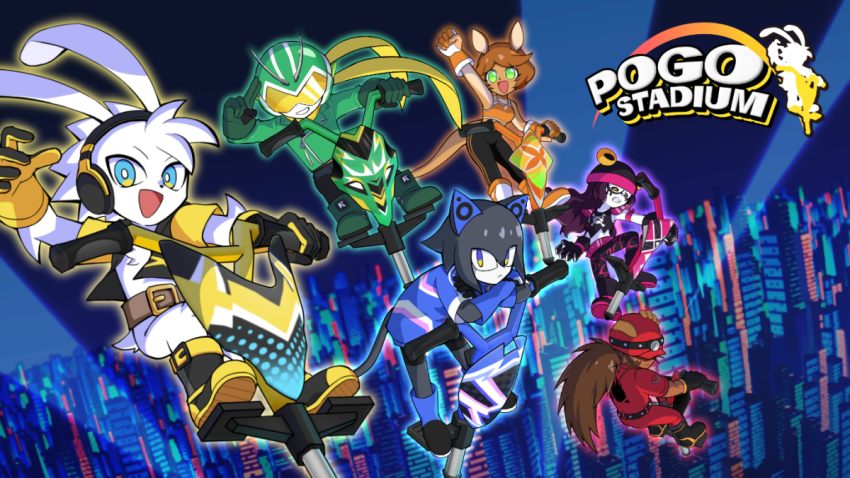Introduction to POGO Stadium
Kyoto Entertainment Works Inc. and publisher ruff Co., Ltd. have officially launched POGO Stadium into Early Access on Steam today. This energetic and visually striking arena game offers players an exciting experience through rhythmic, territory-based battles across more than 100 stages. Whether playing solo or engaging in intense local multiplayer matches with up to four players, the game promises a unique blend of strategy and action.
Gameplay Mechanics and Features
At the heart of POGO Stadium are futuristic pogosticks known as “pogo gear.” These tools allow players to navigate floating arenas by bouncing and jumping to claim sections of the stage. Each jump not only helps in expanding territory but also smashes floor panels, creating pockets of ownership. The more ground a player controls, the more energy they accumulate, which can be used to launch powerful attacks against opponents. However, a single misstep can result in being sent back to the starting point, forcing players to rebuild their territory from scratch.
The current Early Access version includes several key features:
- A 50-stage Solo campaign with progressive challenges
- Local Battle Mode supporting up to four players
- Basic arena layouts and core gameplay systems designed for community feedback
This initial release serves as a foundation for future updates, which will expand the game’s offerings and refine its mechanics based on player input.
Future Updates and Development Plans
Developers have outlined several upcoming additions that will enhance the POGO Stadium experience. These include co-op levels, online multiplayer capabilities, new stages, gear customization options, and balanced tweaks. Additionally, the team is actively working on refinements to stage flow and game balance, ensuring a more polished experience as the game progresses.
The developers have set a six-month timeline for the Early Access period, though this may extend if necessary to accommodate feature development. Their goal is to create a well-rounded and engaging game that reflects the community’s input and expectations.
Community Engagement and Feedback
A strong emphasis is placed on community engagement throughout the development process. Developers encourage players to provide feedback on various aspects of the game, including balance, stage flow, and potential new modes. This collaborative approach ensures that the final product aligns with player preferences and expectations.
Players can participate in discussions on Steam forums, stay updated with regular dev log updates, and witness the game’s evolution in real time. This level of transparency and interaction fosters a sense of involvement and investment among the community.
Conclusion
POGO Stadium represents an innovative take on arena-based gameplay, combining rhythm, strategy, and competitive elements in a dynamic setting. With its vibrant visuals, engaging mechanics, and commitment to community feedback, the game has the potential to become a standout title in the genre. As the Early Access phase continues, players can look forward to a continually evolving experience shaped by their contributions and enthusiasm.
